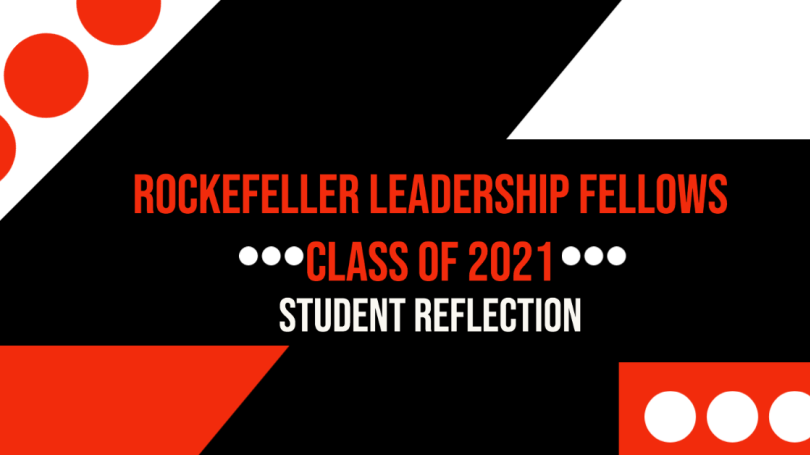
- Public Policy
- Leadership
- Funding
- News & Events
- About the Center
Back to Top Nav
Back to Top Nav
Back to Top Nav
Back to Top Nav
On April 9th, Megan Cornell gave a presentation on using empowerment to maximize group potential. Megan explains that oftentimes, expectations shape performance and using empowerment as a tool can drastically improve outcomes both on an individual and team level. She believes that as a leader, it is important to build trust and be present as a leader so that you can effectively empower your team and produce the best outcomes for everyone involved. She provides six concrete ways that we can implement empowerment in our teams, including: sharing information, creating clear goals, creating an atmosphere where you can learn from mistakes, celebrating successes/failures, supporting a learning environment, and letting teams take on power and responsibility.
As young leaders, we are intuitively aware that our attitude towards ourselves and others drastically changes outcomes. For example, if you are leading a project and come into it with a very anxious, insecure, and scared mindset, the entire project will feel somewhat uncertain and shaky from the start. This will make it difficult for you to get your footing and be confident that you have all the tools you need to succeed and to support the rest of the team. Even just having one team member feel nervous or uncertain can have a negative effect on the whole team.
Currently, in the virtual/Zoom environment, it can be difficult to connect with members of our team in the same way we were able to in person. This is one potential challenge that may make it more difficult for us to empower one another. However, it is still possible to create an open, communicative, and trusting environment in a virtual setting. For example, doing quick check-ins via email or Zoom can be a useful tool to make sure that every member of a team is feeling supported and seen. Or, before a Zoom meeting, it can be helpful to send out a quick agenda so that team members know what to expect from the meeting and everyone is on the same page.
Taking steps to empower your team, including building trust and rapport, is difficult but well worth it in the end for all those involved. As young leaders, we must constantly strive to improve our communication skills so that we can genuinely connect with and build rapport with those on our teams. Having clear communication and goals set will improve the mood and the performance of everyone involved in any given project. This is helpful in preventing a sense of despair, hopelessness, anxiety and/or negativity for all involved. It is crucial that we constantly strive to improve our self-talk, our communication skills, and our ability to empower those around us to feel more confident and secure as a valued member of the team.
-Written by Olivia Lovelace, Class of 2021 Rockefeller Leadership Fellow
As Rockefeller Leadership Fellows, seniors gain a better understanding of the qualities and responsibilities expected of leaders. As Fellows take part in the workshops, discussions, and team-building exercises, they examine their skills, qualities, and attributes as leaders and analyze how these influence teamwork and achieving goals.